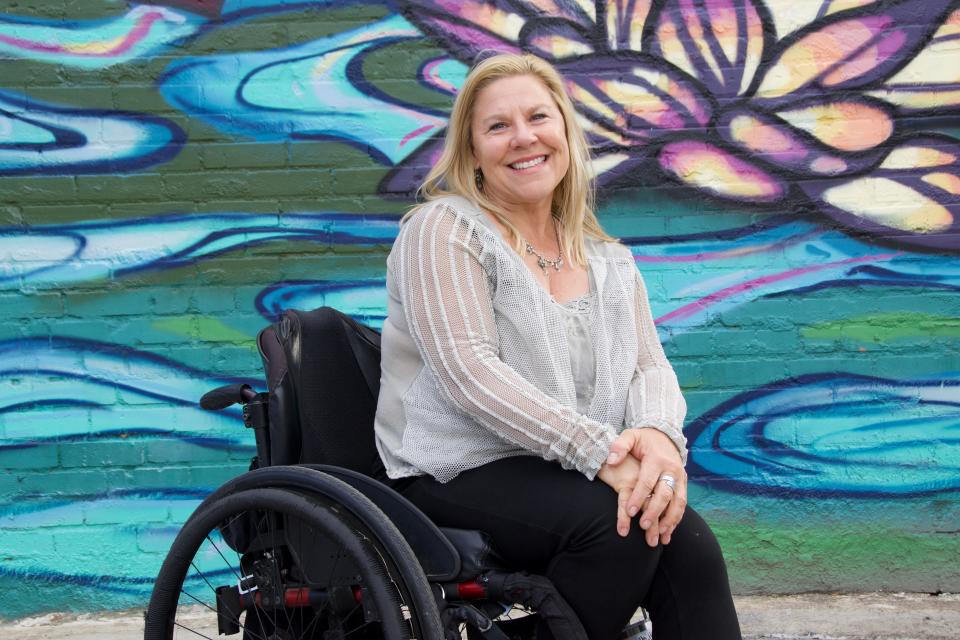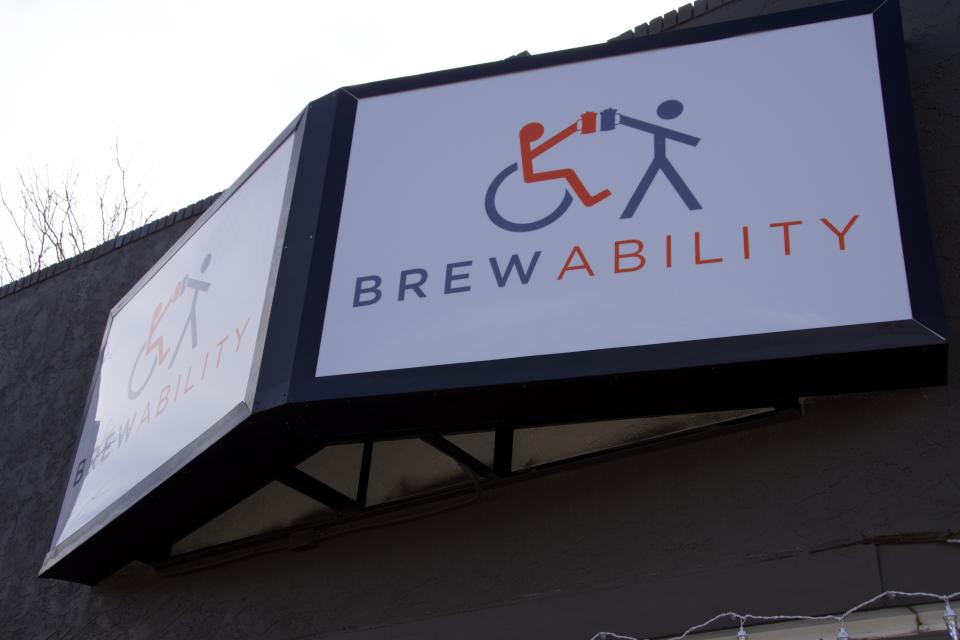How Colorado's first legislator to use a wheelchair reveals accessibility gaps
The Colorado Capitol looks different than it did four years ago.
One notable addition: The ramps on the House floor didn't used to be there.
When Democratic Rep. David Ortiz of Littleton took office in 2021, he became the first Colorado legislator to use a wheelchair, highlighting critical gaps in accessibility needs in the historic building.
Although accessible ramps have been installed, the Capitol building still poses safety concerns for those using wheelchairs, as some areas are still inaccessible despite elevators.
The 41-year-old served in the U.S. Army and was left paralyzed from the waist down nine years ago after surviving a helicopter crash in Afghanistan.

In the past four years, he has introduced 21 bills regarding disability rights, including six this year, and said Colorado's recent increase in disability rights embodies why representation matters.
"This is a club you can join any time, and by club, I mean becoming disabled," Ortiz said in a recent interview. "I can't tell you how many of my colleagues have championed disability rights bills because they see how difficult it is for me to just do my basic job in a building that's not even fully accessible itself or hear them parroting my talking points, which gives me goosebumps to hear them say this is a club we can join any time."
More: Trump trial coverage live updates: Two jurors dismissed from Trump hush money trial
Ortiz added that the real heavy lifting will happen when more people with disabilities become lawmakers.
"Whether they're blind, or deaf, or live life in a wheelchair, or have cerebral palsy – unless people like that get elected to office, our voices won't truly be represented, and that's the bottom line."
How does Colorado rank when it comes to accessibility?
Ortiz believes Colorado is leading the way in accessibility in lawmaking, although some parts of the state still lack basic accessibility.
Former Ms. Wheelchair Colorado and current Denver nurse Chris Lane, 55, agrees.
Lane was celebrating her son's 17th birthday on Oct. 28, 2016, with a rock climbing trip in Clear Creek Canyon when she slipped and fell 80 feet.
"When I hit the bottom, I was no longer the nurse – I became the patient," Lane said.
More: Disney is changing its DAS program: What guests with disabilities should know
The fall shattered Lane's wrist and T6 thoracic vertebrae. The damage to her spinal cord was so great that she became an incomplete paraplegic.
"I am 100% a wheelchair user," she said. "I have my spirit, I have my brain, I just don't have the use of my legs, and that's OK."

Lane said that the pivotal moment for her as a new paraplegic was when she went to her local recreation center to swim using a chair lift, only to find it broken.
"I was so disappointed, and I just remember thinking, is this what my life is going to be like in a wheelchair? My first want in my life as a new paraplegic, is this really how it will be? The next day, I wrote a letter to the rec center asking to install two working chair lifts. It took a while, but they did it so I and other people could get into the pool, and that fired me up to be an advocate for those of us in wheelchairs and with disabilities."
Although her life is different than she imagined, she said she has "never been angry, I just made the best out of what I have – I get up, get out and get rolling. This community is one anyone could join anytime."
How a Colorado-born app tracks accessibility
Lane and Ortiz told the Coloradoan that utilizing technology like the Roll Mobility app has been helpful for them and others who are disabled.
Roll Mobility started in Colorado and is currently available in 37 countries on Apple and Android devices. The app was inspired by accessibility-forward establishments such as Brewability Lab, the site of Lane's recent interview with the Coloradoan, part of the USA TODAY Network. The brewery and restaurant located on South Broadway in Englewood is fully accessible to anyone with physical, developmental or intellectual disabilities.

Roll Mobility app co-founder Rachel Zoeller said she discovered the need for an app that could track and rate the accessibility of restaurants, public spaces, businesses, trails, and parking areas after becoming a wheelchair user herself.
"Before Roll Mobility, there wasn't really a place to catalog that information," Zoeller said. "It's exhausting to live a disabled life and constantly fight for rights, so it catalogs all the experiences we are living and having. ADA is the bare minimum for what people with disabilities deserve."
'I want to enjoy some of the freedoms I've fought for.'
After four years as a lawmaker representing his community and those with disabilities, Ortiz announced he would not run for reelection.
Although he will leave at the end of his term this year, Ortiz believes his work made a lasting impact and encourages those living with a disability to get involved with politics and take his place.
"I've served, I've done my job, and I've made a lot of sacrifices to do so, and now I want to enjoy some of the freedoms I've fought for," he said.
That includes exploring the IVF process with his wife, he said.
"I'm 41 years old; I'm not trying to be Robert De Niro having a kid in his 80s, so you know that's why I'm leaving, to enjoy some of the things that are personal for me."
But that doesn't mean his advocacy work is over.
Ortiz said his "dream scenario coming back" would be working with advocacy organizations and helping them "and up their game, and lobby more effectively and efficiently and to recruit and train people to run for office."
This article originally appeared on Fort Collins Coloradoan: Rep. David Ortiz, first in a wheelchair, reveals CO accessibility gaps
